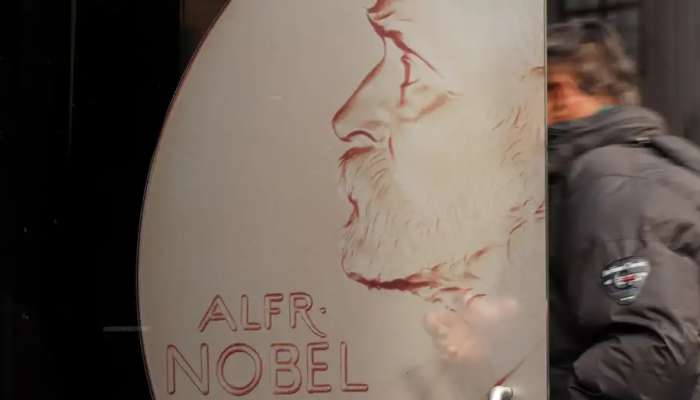
Stockholm: Economists from the US, Canada and France were awarded this year's Nobel Memorial Prize in economics on Monday, the final award of this year's Nobel week.
Joel Mokyr, Philippe Aghion and Peter Howitt won the 2025 Nobel economics prize for "having explained innovation-driven economic growth", the Royal Swedish Academy of Sciences said.
The prize was awarded at a ceremony in Stockholm and comes after prizes for peace, medicine, physics, chemistry and literature were revealed last week.
Mokyr, Aghion and Howitt's work, spanning economic history, theoretical models, and empirical analysis, has reshaped how economists, policymakers and researchers approach the mechanisms behind technological progress and prosperity.
The Nobel committee said Mokyr "demonstrated that if innovations are to succeed one another in a self-generating process, we not only need to know that something works, but we also need to have scientific explanations for why."
The winners were credited with better explaining and quantifying "creative destruction," a key concept in economics that refers to the process in which beneficial new innovations replace — and thus destroy — older technologies and businesses. The concept is usually associated with economist Joseph Schumpeter, who outlined it in his 1942 book "Capitalism, Socialism and Democracy."
Dutch-born US citizen Mokyr is a professor of economics and history at Northwestern University, France-born Aghion is Centennial Professor at the London School of Economics, while Canadian Howitt is a professor in social sciences at Brown University.
What is the Nobel Prize in Economics?
The economics prize is formally known as the Bank of Sweden Prize in Economic Sciences in Memory of Alfred Nobel.
The central bank established it in 1968 as a memorial to the 19th-century Swedish industrialist who invented dynamite and went on to establish the five Nobel Prizes. The prize has since been awarded 57 times to a total of 99 laureates.
Last year's award went to the US-based trio Daron Acemoglu, Simon Johnson and James A. Robinson for their research on how freer, more open societies are more likely to prosper economically.
The prize has seen criticism over the high volume of Western male laureates, with only three of the previous winners being women.
Although technically not a Nobel, the economics prize is always presented together with the others at a ceremony on December 10, the anniversary of Nobel's death in 1896.
Who else received a Nobel prize?
This year's other Nobel Prize winners were: Medicine — Mary E. Brunkow, Fred Ramsdell and Simon Sakaguchi for "discoveries concerning peripheral immune tolerance," Phyisics — John Clarke, Michel H. Devoret and John M. Martinis for their work in the field of quantum mechanical tunneling, Chemistry — Susumu Kitagawa, Richard Robson and Omar M. Yaghi for developing a new metal-organic framework, Literature — Laszlo Krasznahorkai for "his compelling and visionary oeuvre" in the "midst of apocalyptic terror" that "reaffirms the power of art,“ Peace — Maria Corina Machado for "her tireless work promoting democratic rights for the people of Venezuela."